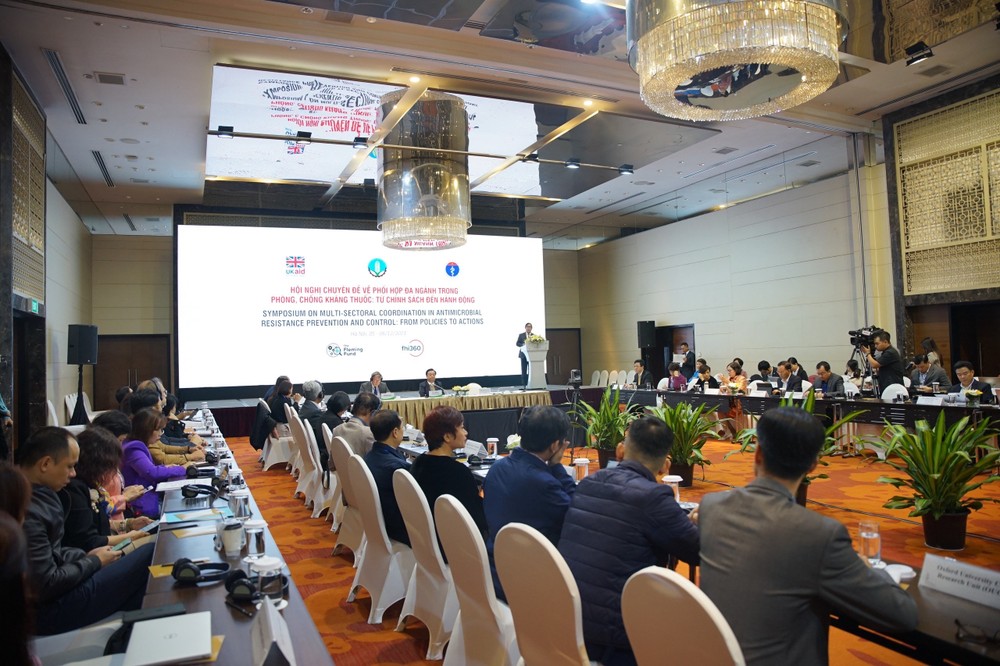
On the morning of December 5 in Hanoi, the Ministry of Agriculture and Rural Development, in collaboration with the Ministry of Health, hosted the "Symposium on Multi-Sectoral Coordination in Antimicrobial Resistance Prevention and Control: From Policies to Actions," supported by the Fleming Fund from the United Kingdom through the Family Health International (FHI360).
In his address at the conference, Minister of Agriculture and Rural Development Le Minh Hoan underscored the serious impact of antibiotic misuse on both human and animal health, as well as its implications for food safety and environmental pollution. The escalating trend of antibiotic resistance shows no signs of abating.
The Ministry of Agriculture and Rural Development has disallowed the use of antibiotics to stimulate growth in livestock since January 1, 2018. The ministry is actively pursuing a reduction in antibiotic usage in livestock for disease prevention. As stipulated in Government Decree No.13/2020/ND-CP, the complete prohibition of antibiotic use for disease prevention in livestock will come into effect from January 1, 2026.
Starting from 2026, antibiotics will only be permitted for treating diagnosed animal diseases, and their usage must be prescribed by a licensed veterinary practitioner.
During the conference, Associate Professor - Dr. Luong Ngoc Khue, Director of the Medical Examination and Treatment Department, Deputy Head of the National Steering Committee for Antimicrobial Resistance Prevention and Control, emphasized the urgency of strengthening education and communication programs to alter perceptions and prevent the misuse of antibiotics in healthcare, livestock, veterinary, and community.
"Antibiotic resistance poses a significant threat to global health and development, necessitating resolute action across all levels and sectors. The World Health Organization has identified antibiotic resistance as one of the top ten threats to human health. The improper use and abuse of antibiotics are the primary factors contributing to the development of bacterial resistance. Failing to act today will make it increasingly difficult tomorrow to witness patients enduring suffering without access to effective treatment," remarked Mr. Luong Ngoc Khue.
























